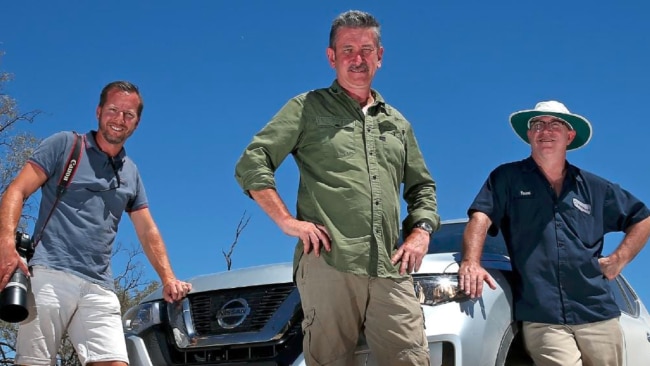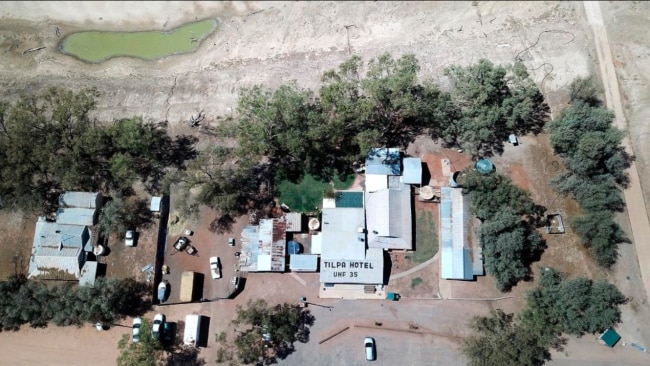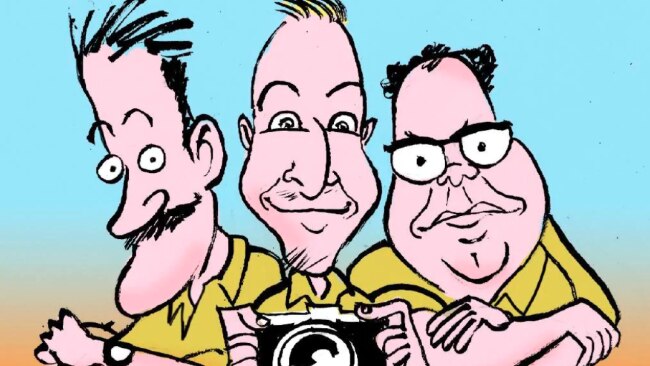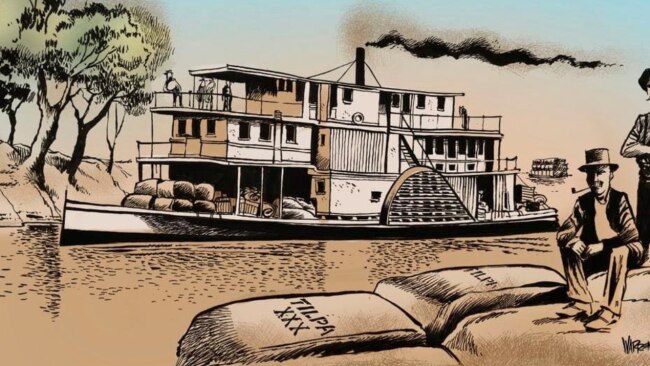GREAT RIVER RUN, PART ONE: THE BIG PICTURE
A Daily Telegraph team including me recently drove through remote inland NSW and along the length of the Darling River in search of water. Spoiler alert: we didn’t find much.

A Daily Telegraph team including me recently drove through remote inland NSW and along the length of the Darling River in search of water. Spoiler alert: we didn’t find much.
Here’s the first instalment, to be followed by several more:
Sometimes the perfect storm involves no storm at all.
Sometimes all the elements for a perfectly ruinous natural disaster come about through absence rather than presence: absence of rain, absence of management, absence of foresight.
This is the story of the Darling River, presently absent of water, and the resilient, resourceful people of inland NSW, who remain defiantly absent of despair.

Late last month, the Daily Telegraph’s cartoonist Warren Brown, photojournalist Toby Zerna and I headed northwest to begin a week-long trek along the Darling, and through the towns and communities that depend on the river for their livelihoods.
All of us had been previously, personally drawn to Australia’s arid, sparsely populated interior regions. Indeed, Warren had previously drawn them. So we were not coming at this cold, if such a thing is possible given daytime temperatures approaching 40C.

We began our journey in Moree, nearly 630km and attitudinal light-years from Sydney. In the spirit of absence, we brought with us no agenda, no preconceptions and no angles regarding the tough times faced by those who make their way in the world along the Darling’s dusty banks.
Please read on. And also enjoy Warren Brown’s first piece:
In 1828 explorers Charles Sturt and Hamilton Hume were commissioned by the governor, Ralph Darling, to follow the course of the Macquarie River running through Bathurst and Dubbo and the following year they discovered the upper reaches of the river that would be given the governor’s name.
It was Major Thomas Mitchell who, while exploring 500km of the Darling River in 1835, correctly predicted it would converge with the Murray River.

These explorers had joined the dots linking the waterways from the Darling Downs in Queensland to a series of rivers that would converge to become the Darling River, which in turn flowed to the South Australian coast.
What this meant was there was a route for accessing some of the most remote parts of the country where millions of acres of grazing land lay untapped.
Again, please read on. Much more to follow, including a quickly-concluded serpent attack, a top-speed driving accomplishment and multiple incidents of brilliant Chinese food.






